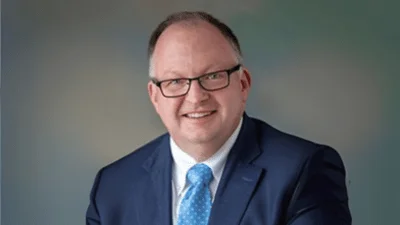Illinois Gov. JB Pritzker | illinois.gov
Illinois Gov. JB Pritzker | illinois.gov
Illinois’ $50.4 billion state budget was signed by Gov. J.B. Pritzker on June 8 with many panning its provision of a raise for lawmakers. “After giving themselves a hefty pay raise earlier this year, Democrats decided it was time for another, voting to boost lawmaker salaries once again in the budget last week,” the Illinois House Republicans posted on Facebook.
The $50.4 billion state budget in Illinois has sparked controversy due to pay raises for lawmakers and increased taxes for taxpayers. The discrepancy in salaries between Illinois lawmakers and those in neighboring states has also been a point of contention, with critics arguing that the raises are unjustified. The Democratic majority included the raises despite having already given themselves a pay boost the previous year, bringing the base salary for the General Assembly to $89,675 annually.
State Rep. Martin McLaughlin (R-Barrington Hills) expressed outrage at the raises, emphasizing that being a legislator is a part-time job. He apologized to taxpayers for the lack of transparency in passing the pay raise and highlighted the stark contrast in salaries, noting that lawmakers in neighboring Iowa and Indiana earn closer to $25,000 a year.
“This is the most ridiculous thing I have ever seen,” McLaughlin said, according to Advantage News. “I want to apologize to the taxpayer. I actually went out last year and thanked and apologized and asked 'were you aware that we passed a pay raise at 11 o’clock at night on a Thursday?' They were shocked.”
State Rep. Dan Caulkins (R-Decatur) pointed out that the election-year tax breaks by Democrats are expiring, resulting in the return of the grocery tax and another gas tax hike, burdening Illinois residents with additional taxes. Caulkins expressed concern over unsustainable spending, with the budget having increased from $38 billion to over $50 billion in just five years.
Pritzker, a Democrat, praised the budget for its investments in children and families while highlighting fiscal responsibility.
"From the beginning, I promised to work together with the General Assembly to restore fiscal responsibility to our state government after years of mismanagement," Pritzker said in a release. "Thanks to our firmer fiscal foundation, we have been able to put billions of dollars back into the pockets of Illinois taxpayers while investing in our future. Our budgets have allowed thousands more students to stay in Illinois because they can afford a college degree. Balanced budgets have allowed us to modernize our infrastructure, build nation-leading clean energy production, attract industries of the future like quantum computing, and prioritize childcare for working families and our youngest children."
Pritzker has been traveling throughout the state to promote increased taxpayer funding for education, infrastructure, and new initiatives such as early childhood education and programs addressing homelessness and areas lacking grocery access.
During a stop in Quincy, the governor defended the pay increase for legislators, acknowledging that the 17% raise implemented last year may seem substantial but was partly due to previous pay freezes, according to The Center Square's Greg Bishop.
The Illinois budget includes allocations for various purposes, including addressing the state's underfunded pension, funding summer youth jobs, and supporting Chicago's migrant assistance efforts, albeit not to the extent desired by the city. Pritzker exercised a reduction veto, his second in five years, to rectify an "inadvertent" mistake made by lawmakers who voted for a 5.5% raise for themselves, exceeding the 5% maximum allowed by state law. The adjustment reduces legislative salaries to $89,250 starting July 1, instead of the initially proposed $89,675, Politico reported. The budget also does not include renewed funding for the Invest in Kids scholarship program, which provides financial assistance to low-income and working-class families to afford non-public schools.
House GOP leader Tony McCombie expressed concern about the size of the budget, being the largest in Illinois history, and suggested that it could lead to future tax hikes.



 Alerts Sign-up
Alerts Sign-up